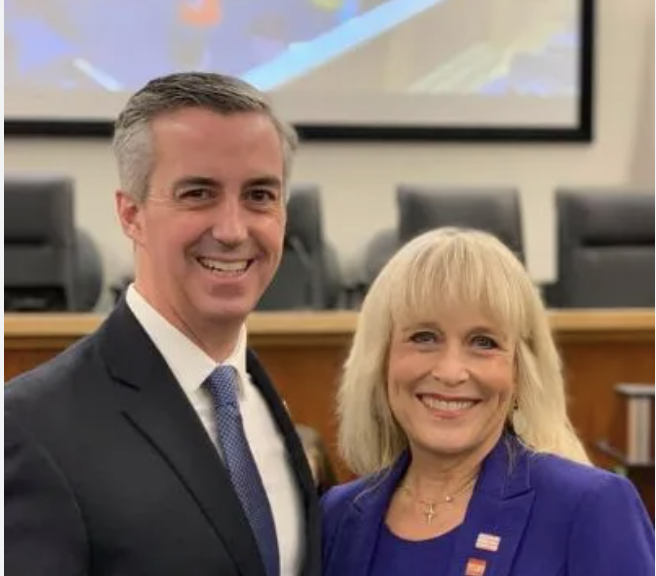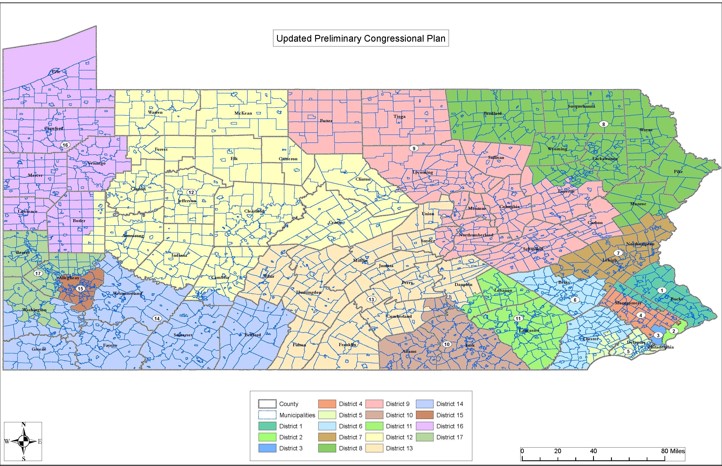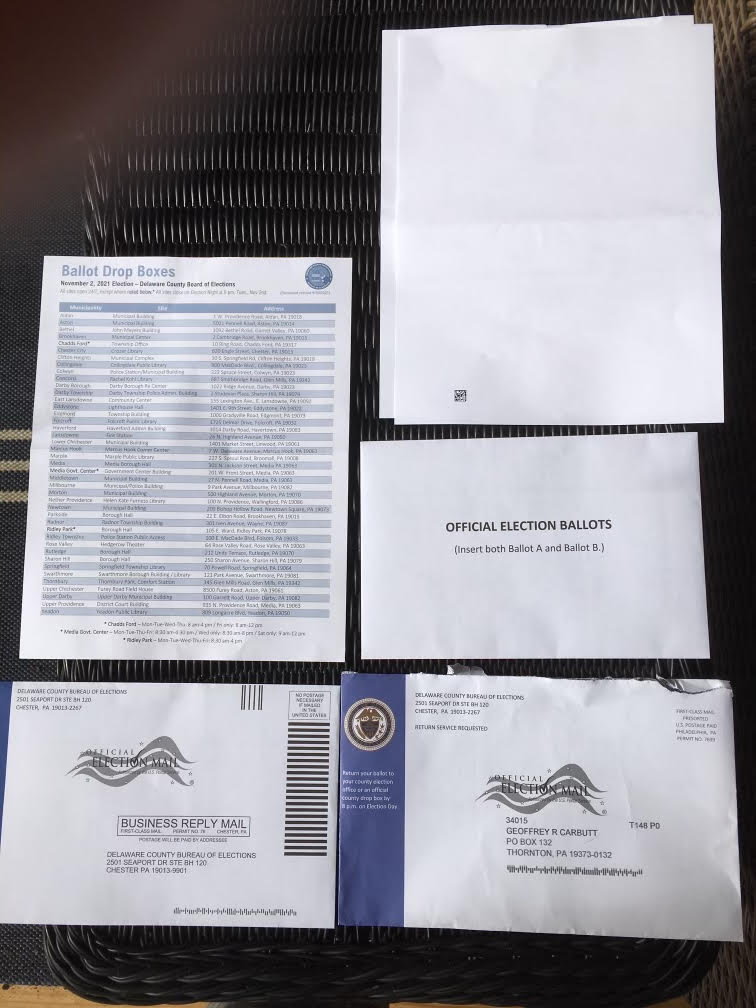Democrats Sweep DelVal County Elections, Retain State Supreme Court Seat

Democrats kept their hold on Delaware Valley county politics, sweeping local elections Tuesday and contributing to a good night for their party across the commonwealth. And voters elected Judge Daniel McCaffrey, also a Democrat, to fill a vacancy on the state’s Supreme Court.
The Republicans in Bucks, Montgomery, and Delaware Counties ran on the issue of public safety, pointing out that crime is increasing in the suburbs. But that issue did not convince voters. In Chester County, Republicans attempted to use the escape and two-week manhunt of convicted murderer Danilo Cavalcante to tar Democrats in charge of the county as incompetent.
In Bucks County, incumbent Democratic Commissioners Bob Harvie and Diane Ellis-Marseglia were challenged by incumbent Republican Gene DiGirolamo and Controller Pam Van Blunk.
With 100 percent of the precincts reporting, Ellis-Marseglia was ahead at 27.67 percent, followed by Harvie at 25.53 percent. DiGirolamo had 24.01 percent and Van Blunk garnered 22.74 percent.
In Chester County, Democratic incumbent Commissioners Josh Maxwell and Moskowitz faced Republicans Eric Roe and David Sommers. With all precincts reporting in, Maxwell and Moskowitz were each ahead at 28.33 and 27.75 percent, respectively. While Roe was ahead of Sommers at 23.02 percent to 20.86 percent for the minority board seat.
In Delaware County, three incumbent Democrat Council Members, Monica Taylor, Ph.D., Elaine Paul Schaeffer and Christine Reuther, were challenged by GOP candidates Joy Schwartz, Jeff Jones and Bill Dennon, the Upland Borough mayor. With 100 percent of the precincts reporting, the Democrats retained their seats on the five-person council. And incumbent DA Jack Stollsteimer bested Republican challenger Beth Stefanide-Miscichowski.
Chester will also have a new mayor. Democrat City Councilman Stefan Roots bested Independent Anita J. Littlejohn. Roots defeated outgoing Mayor Thaddeus Kirkland in the Democratic primary earlier this year.

Judge Carolyn Carluccio with her husband, Tom Carluccio and son, Joseph, walk to the Wissahickon Valley Library in Skippack to vote.
In Montgomery County, incumbent Commissioner Jamila Winder and candidate Neil Makhija, both Democrats, bested Republicans Liz Ferry and Tom DiBello. With all votes counted, DiBello was ahead of Ferry by 85,934 votes to 83,811 for the seat reserved for the minority commissioner.
In Philadelphia, where her party holds a 7-1 voter registration advantage, Democrat Cherelle Parker easily defeated David Oh to become the first Black woman mayor of the city. And Republicans appear to have lost one of their two remaining City Council seats to the leftwing populist Working Families Party. The only GOP holdout was Councilman Brian O’Neill who won re-election to the 10th District.
Statewide, the marquee race was for an opening on the Pennsylvania Supreme Court. Republican Judge Carolyn Carluccio, president judge for Montgomery County, lost to Superior Court Judge Dan McCaffrey.
A relentless spate of negative television commercials pummeled voters in the weeks leading up to Election Day, along with internet ads and mailings. The race was pricy, too. About $17 million was spent, with outside groups including unions, lawyers, and others pumping in cash. Democrats made abortion, an issue that worked for them in 2022, again the centerpiece of their argument.
Charlie Gerow, a GOP consultant with Quantum Communications, said, “The results of the Supreme Court race are especially troubling. Not winning that seat means that Democrats will likely control that Court for the rest of my life. Equally troubling were the at -large Council seats in Philadelphia that Republicans failed to win. The system was not designed to have no GOP representation, but that is what we have for the first time in modern history.”
“One bright spot was the re-election of Steve Zappala (for district attorney) in Allegheny County who won as a Republican over a Larry Krasner style Democrat,” Gerow added.
Carluccio sent this concession statement: “I just spoke with Judge McCaffery. The people have spoken, and while the outcome was not what we hoped for, the democratic process has once again prevailed. I want to express my deepest gratitude to my supporters for your time and your belief in our vision for a fair and impartial judiciary.
I congratulate my opponent on his victory and wish him the wisdom and strength to uphold the great responsibility that comes with serving on our State Supreme Court. It is my hope that he will serve the interests of justice and the well-being of all Pennsylvanians at heart.
To all who have stood by me, know that our efforts have not been in vain. We have sparked important conversations and advocated for the values we hold dear. I remain committed to serving our community and upholding the rule of law as President Judge of the Montgomery County Court of Common Pleas.”
McCaffrey’s win will bring the high court back to a 5-2 Democratic majority.










